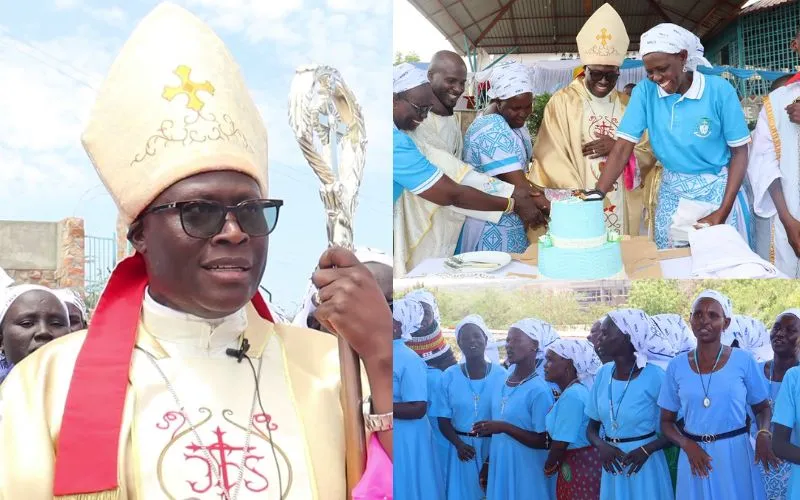Nairobi, 16 September, 2024 / 11:23 pm (ACI Africa).
The government of Kenya needs to “urgently review” foreign missionaries’ work permit charges that it inflated by 1,000 percent, from KES 15,000.00 (approx. US$ 150.00) to KES 150,000 (US$ 1,500.00), a Catholic Bishop in the East African nation has appealed.
Bishop John Mbinda of Kenya’s Catholic Diocese of Lodwar that is served by a sizeable number of foreign missionaries made the appeal on September 14, reiterating the concern that members of the Kenya Conference of Catholic Bishops (KCCB) raised earlier, in April.
“Even with simple computation, it is hard to understand or explain why the work permit fee has been raised so significantly, especially when these missionaries work in areas where even the government itself cannot provide services,” Bishop Mbinda lamented in his address to journalists at the Immaculate Conception Shrine, where he presided over the annual Eucharistic celebration of the Catholic Women Association (CWA) of his Episcopal See.
Alluding to the situation of the Northeastern Kenyan Catholic Diocese that ministers to marginalized communities and refugees, he noted that the inflated charges are “not right, especially for us here in Turkana, where most of those who help our county are foreign missionaries.”
“The government must urgently review this issue as it is a matter of urgency,” he emphasized, and added, “I believe it is the government’s responsibility to address the concerns raised by Kenyan Bishops regarding these fees.”








